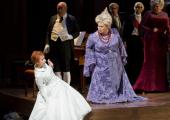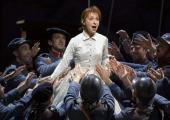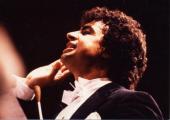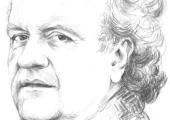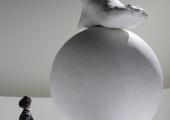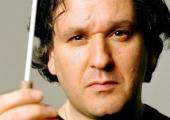Le nozze di Figaro, Royal Opera
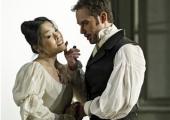
Colin Davis brings his habitual brisk elegance to Figaro. Pity the cast didn't get the memo
The opening night of Le nozze di Figaro was not so much an opera of two halves as an opera of two teams. In the pit we had Sir Colin Davis and the Orchestra of the Royal Opera House offering a crisply incisive rendering of Mozart’s score; onstage we had the Royal Opera Chorus and a selection of soloists, most of whom seemed set on a rather different – and, in the case of the chorus, downright lacklustre – rendition of the score.


